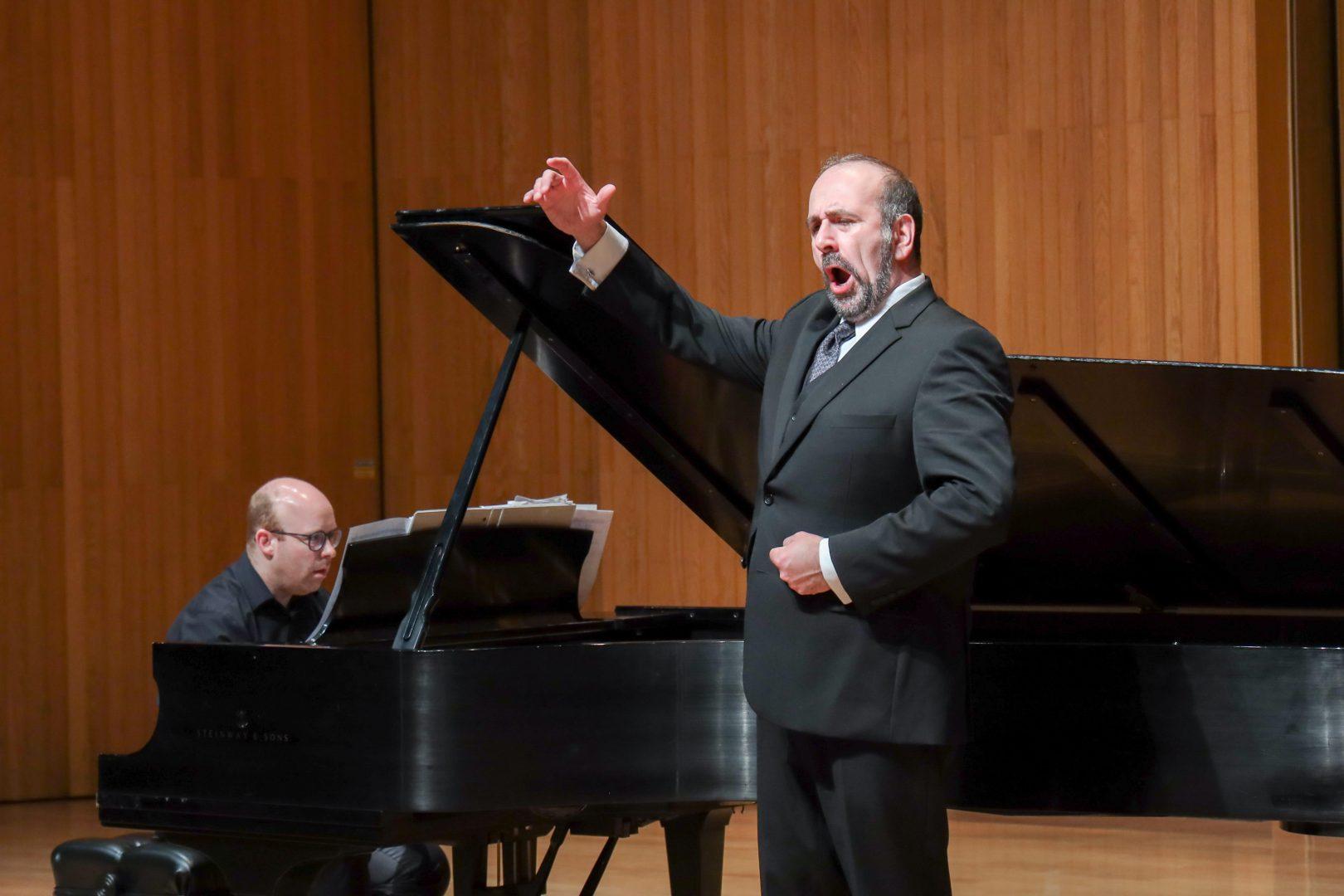Chuckles murmured throughout a Russian art song performed by baritone Anton Belov on Saturday, Feb. 29. Belov’s voice changed throughout “The Song of the Flea” changed characters and told a story, communicated beyond mere language. The piano coupled with Belov’s voice changes set a cartoon-like atmosphere, and music students seemed to appreciate his talent.
“You have to make those noises,” Belov said, “If you don’t, the song doesn’t work.”
Though Belov sang in Russian, he communicated beyond language and used his singing to share a story that painted visuals for all listeners. The audience laughed at the comedic skit-like art songs and listened quietly to heartfelt romantic pieces.
Danny Sanchez, a music student, appreciated Belov’s approach to singing with different characters.
“It was definitely super expressive and dramatic,” Sanchez said. “A lot of times people really are scared to really portray those different roles and even go so far as to change their voice to something like that.”
He said that it is notably easier for Belov to communicate the songs’ messages since his first language is Russian.
“It’s so much easier for him to really give the punchline,” he said. “His delivery was amazing.”
Christopher Rodriguez, a graduate music student, remarked at Belov’s skill and the technique it takes for performers to sing in different character voices.
“It’s so interesting because you’re having to change character within kind of a character of itself, and you see this kind of film score in front of you,” Rodriguez said.
Belov’s storytelling is profound enough to paint a picture with tone, facial expression, diction and technique.
“If you don’t speak the language, you don’t necessarily know the context, but you see the character change; you see what’s going on with the story,” Rodriguez said.
The recital was part of a greater series of master classes and a vocal showcase, which concluded with Belov’s art song performance. Altogether, it made up the third annual Art Song Festival, hosted by Maria Briggs, assistant professor of voice at Fresno State.
The event is designed to challenge, showcase and enrich student participants and faculty. Briggs’ goal for the festival is that students walk away with inspiration to become a better artist.
Briggs described Belov as dedicated and talented. She sought to book him to educate music students since the first year of the festival, and she was able to book him this year.
“I think Maria originally found me because I am known as the Russian art song geek,” Belov said.
He said that he is well-versed in helping students know how to sing foreign songs with the correct diction, even if they do not speak the language.
Belov’s recital focused on retrospective Russian art song from early 19th century until beginning of the 20th century.
The genre is categorized by its poetry set to music, usually for one vocalist and pianist.
“Art song is an intimate genre,” Belov said. “It’s about good poetry, very sensitive piano playing, it’s about clear diction and interpretation.”
——
He noted that the songs, which are in Russian, are often difficult to sing because telling the story requires knowledge of the story behind the songs.
“This program is full of fantastic piano playing,” Belov said. “Most of these songs are very complex pianistical works.”
Another element to the difficulty is singing the Russian diction.
Aaléyah Wilson, a Fresno State music student, said she enjoyed learning from Belov.
“I feel like I learned more as a performer and singer, just knowing how to, technique-wise, how to use my voice, and also how to be more present with my performance,” Wilson said. “He’s very well-known for his diction in Russian and also his stage presence.”
Wenyao Xu, another music student at Fresno State, said that she admired the amount of resonance in Belov’s voice.




